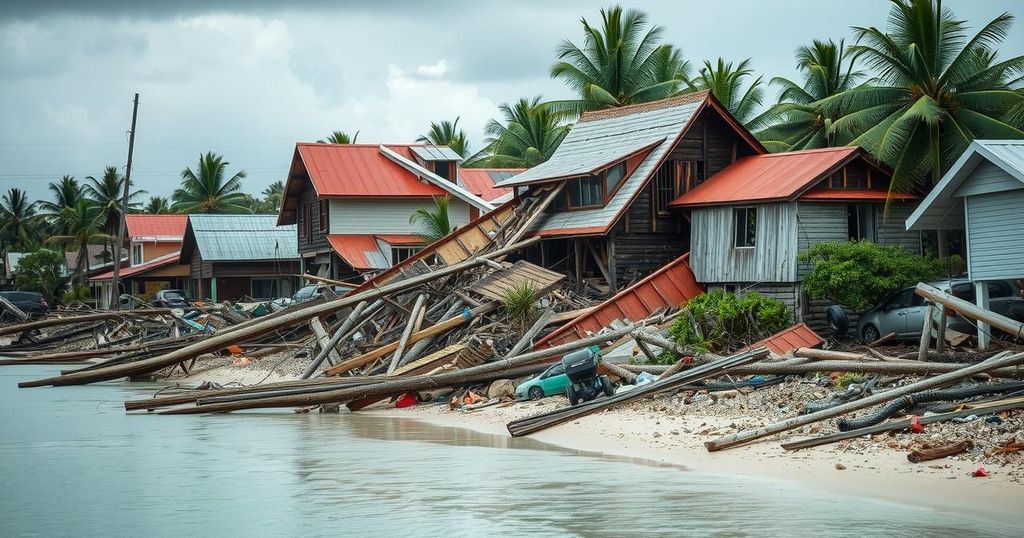Cyclone Chido has devastated Mayotte and northern Mozambique, causing at least 11 deaths and considerable destruction. The region faces critical challenges in recovery, with fears of further loss of life as rescue operations commence. Climate change is aggravating the severity of such natural disasters, emphasizing the need for immediate humanitarian aid and long-term climate action.
Cyclone Chido has tragically resulted in at least 11 confirmed fatalities and extensive damage in Mayotte, a French overseas territory in the Indian Ocean. The tropical cyclone, classified as Category 4 due to its wind speeds exceeding 220 kilometers per hour (136 mph), has affected 2.5 million people in northern Mozambique, where authorities anticipate additional losses and damage. Initial counts include numerous injuries, with warnings from the French Interior Ministry highlighting the situation’s extreme severity in Mayotte, which the local prefect described as the worst cyclone experience in 90 years. Rescue operations, involving significant personnel and supplies from France and nearby territories, are underway as the region begins to assess and address the aftermath of this disaster.
Chido’s impact extends beyond Mayotte, having struck the nearby islands of Comoros and Madagascar, with a report of 11 missing fishermen in Comoros. The cyclone’s trajectory brought it to Mozambique, specifically to Cabo Delgado province, where it has led to destruction of homes, schools, and healthcare facilities. The cyclone season, stretching from December to March, poses ongoing challenges as communities may face isolation due to infrastructure damage. UNICEF has expressed concerns about the effects of flooding and potential outbreaks of waterborne diseases, such as cholera, exacerbated by climate change, underscoring the urgent need for humanitarian assistance.
As rescue and recovery efforts unfold, French officials have focused on restoring essential services such as electricity and access to clean water. The region’s historical vulnerability to cyclones emphasizes the need for international support to alleviate the humanitarian crises that follow such natural disasters. Climate change has been cited as a contributing factor to the increasing severity of these storms, which disproportionately affects poorer nations in southern Africa, calling for more robust global climate action.
Cyclone Chido is the latest in a series of intense tropical storms that have adversely affected southern African nations, specifically targeting the French territory of Mayotte and Mozambique. With cyclone season currently in effect, from December to March, communities are enduring catastrophic effects, including winds that can reach a maximum of 220 kph, leading to widespread destruction. Historical data shows that recent cyclones, such as Idai and Freddy, resulted in thousands of casualties, emphasizing the profound impact of climate change on the region’s weather patterns and humanitarian landscapes. Considering that these nations contribute minimally to global greenhouse gas emissions, the increasing frequency and intensity of these storms highlight a pressing need for urgent international support and assistance in disaster preparedness and response.
In summary, Cyclone Chido has yielded devastating consequences for Mayotte and Mozambique, resulting in loss of life, injury, and significant infrastructure damage. Concurrently, the cyclone’s aftermath calls attention to the broader implications of climate change, particularly for vulnerable populations in southern Africa. As authorities and international organizations work to provide immediate aid and rehabilitation efforts, the situation underscores the urgent necessity for a global response to address both climate change and its consequent humanitarian crises. Continued monitoring and proactive strategies are essential to mitigate the impacts of future cyclones across the region.
Original Source: time.com






